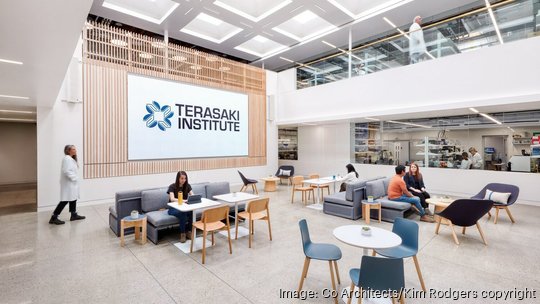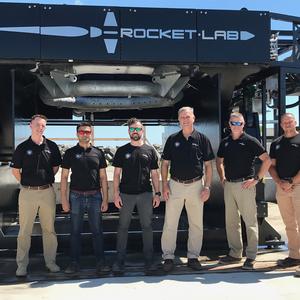
The Terasaki Institute for Biomedical Innovation is doubling down on L.A.'s innovation economy.
In late April, the institute opened a new 50,000-square-foot research center in Woodland Hills where it will conduct biomedical engineering research.
Prior to that, it launched the NeXt Incubator to enable researchers to commercialize their scientific breakthroughs. The incubator is located in West Los Angeles, where the institute also has a presence. Several L.A. startups are already being incubated there.
The institute and incubator are part of a local health care innovation ecosystem that’s backed by national science agencies. Los Angeles County receives more funding from the National Institutes of Health and National Science Foundation than any other county in California.
"We are excited to help lead the charge in bringing more biotech innovation to the vibrant life science community in Los Angeles," Maurizio Vecchione, the institute's chief innovation officer, told L.A. Inno.
Paul Terasaki was a renowned scientist, philanthropist and professor who worked to advance the technology of organ transplantation. He was a professor of surgery at UCLA’s School of Medicine. He established UCLA's HLA (Human Leukocyte Antigens) Laboratory, as well as the UCLA Kidney Transplant Registry.
He opened The Terasaki Institute for Biomedical Innovation in Westwood in 2001. He passed away in 2016.
Incubator focus
The NeXt Incubator is for biomedical startups. It provides scientific and research staff, along with business and technology platforms. The business resources include assistance with IP and tech transfer, as well as funding specialists and commercial strategists.
The tech resources include biomaterials, bio-sensing and wearable devices, personalized cells and 3D bio-printing devices. The incubator also provides capital market access.
The initial cohort of startups includes L.A.-based OMeat, which is working to economically scale sustainable meat production; L.A.-based Nammi Therapeutics, a nanomedicine company; and OpenWater, a San Francisco a neural diagnostics company.
“An active pipeline of applicants are in selection at the moment, with the expectation to add a dozen of incubating companies by year’s end,” Vecchione said.
Institute’s focus
Prior to the new $30 million research center opening in Woodland Hills, the institute's staff and work was spread out between locations in Westwood and West Los Angeles. Its corporate headquarters is in Westwood, with research labs in West Los Angeles.
The institute's overall focus of work, designed to honor Terasaki’s legacy, is researching micro and nanotechnologies and applications in diagnostics, therapeutic drug delivery and regenerative medicine.
This is done from the micro-scale of genes to the macro-scale of human tissues – all for personalized medicine.
More specifically, it includes tissue engineering, sensors, microneedles, bioprinting technologies and organ-on-a-chip.
An organ-on-a-chip is a microfluidic device that replicates the structure and function of a specific human organ, enabling drug testing and disease modeling.
The new research center is already home to about 50 science staff – comprised of various faculty members and scientists from the U.S. and abroad. Ultimately, the vision is to house 100 science staff there.
The scientists and faculty are from universities in SoCal, including UCLA, USC, UCSD and Cal State University Northridge. Beyond this region, affiliate scientists have come from places including Stanford, the University of Michigan, MIT, Harvard, the Mayo Clinic and the University of Arizona.



